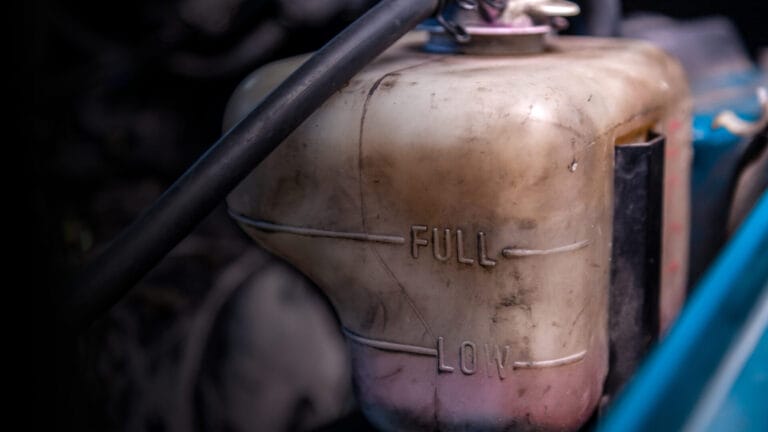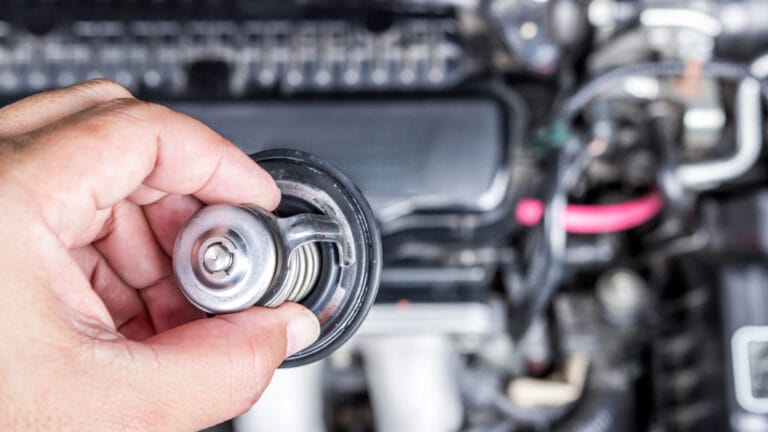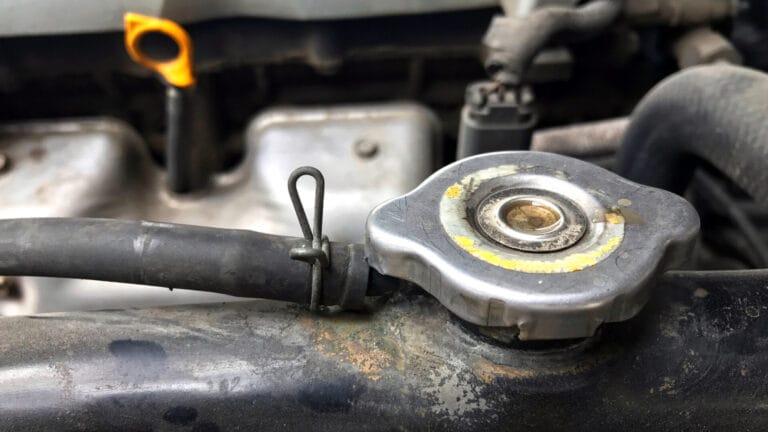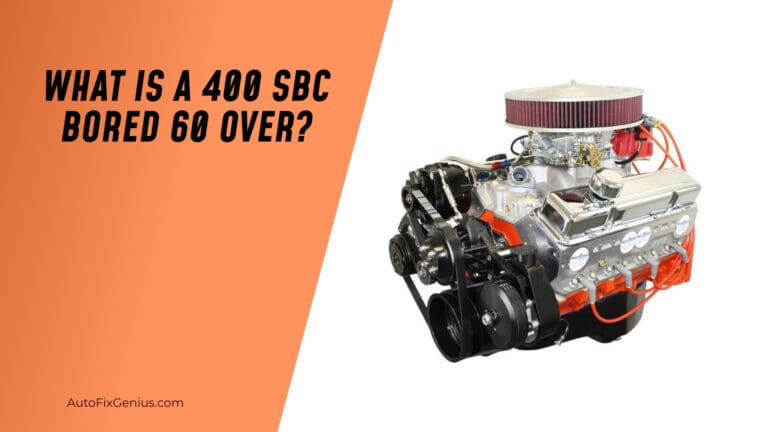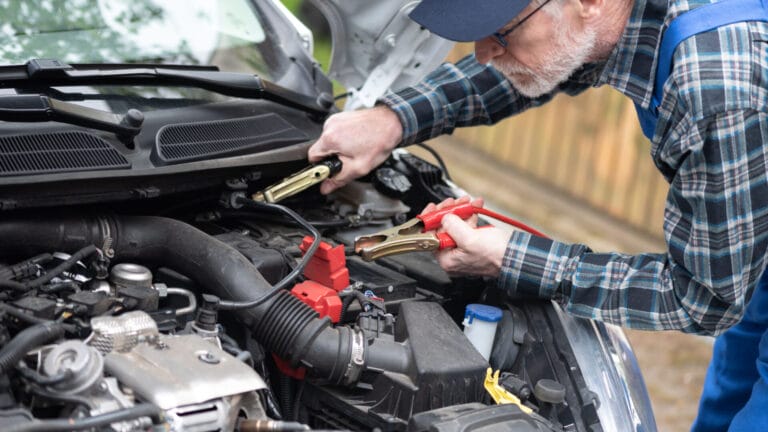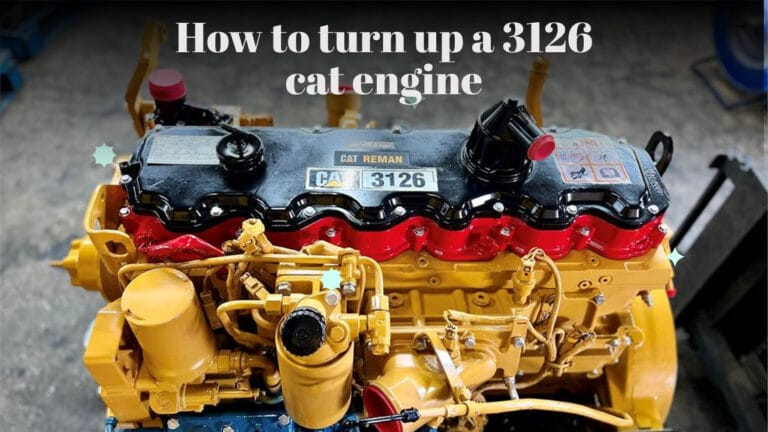Can A Leaking Valve Cover Gasket Lead To Low Oil Pressure
Have you noticed low oil pressure in your car lately? One of the potential reasons could be a leaking valve cover gasket. Feeling a bit puzzled? The protector who seals to prevent engine oil leak is responsible for quietly causing your oil pressure to take a nosedive.
Yes, it is. I was in the same boat when I stumbled upon this little nugget of information. That’s why I decided to drop knowledge bombs and equip you with tips on preventing this leak and what to do if you spot that dreaded low oil pressure warning.
And it doesn’t end here; a leaking valve cover gasket can lead to several issues, which can cause severe damage to your car’s engine if left untreated. I will talk about them too.
So, let’s dive into the world of valve cover gasket leak—how they work, the red flags of a leaky gasket, and the domino effect it can have on your oil pressure.
After all, what’s the point of being a car enthusiast if you can’t enjoy the ride without unexpected pit stops?
- Understanding Valve Cover Gasket And Its Function
- Can a leaking valve cover gasket lead to low oil pressure?
- Impact Of Leaking Valve Cover Gasket on Low Oil Pressure
- What To Do If Low Oil Pressure Is Detected
- Preventive Measures for Valve Cover Gasket Leaks
- How Can You Extend The Lifespan Of The Valve Cover Gasket?
- Is It Safe To Drive With a Leaking Valve Cover Gasket?
Understanding Valve Cover Gasket And Its Function
In the intricate dance of engine components, understanding what a valve cover gasket is and its role is like having backstage access to your engine’s performance. This small component is often overlooked, but its contribution ensures your engine runs smoothly and stays free from unwanted oil leaks.
So, what exactly is a valve cover gasket, and how it works under your hood?
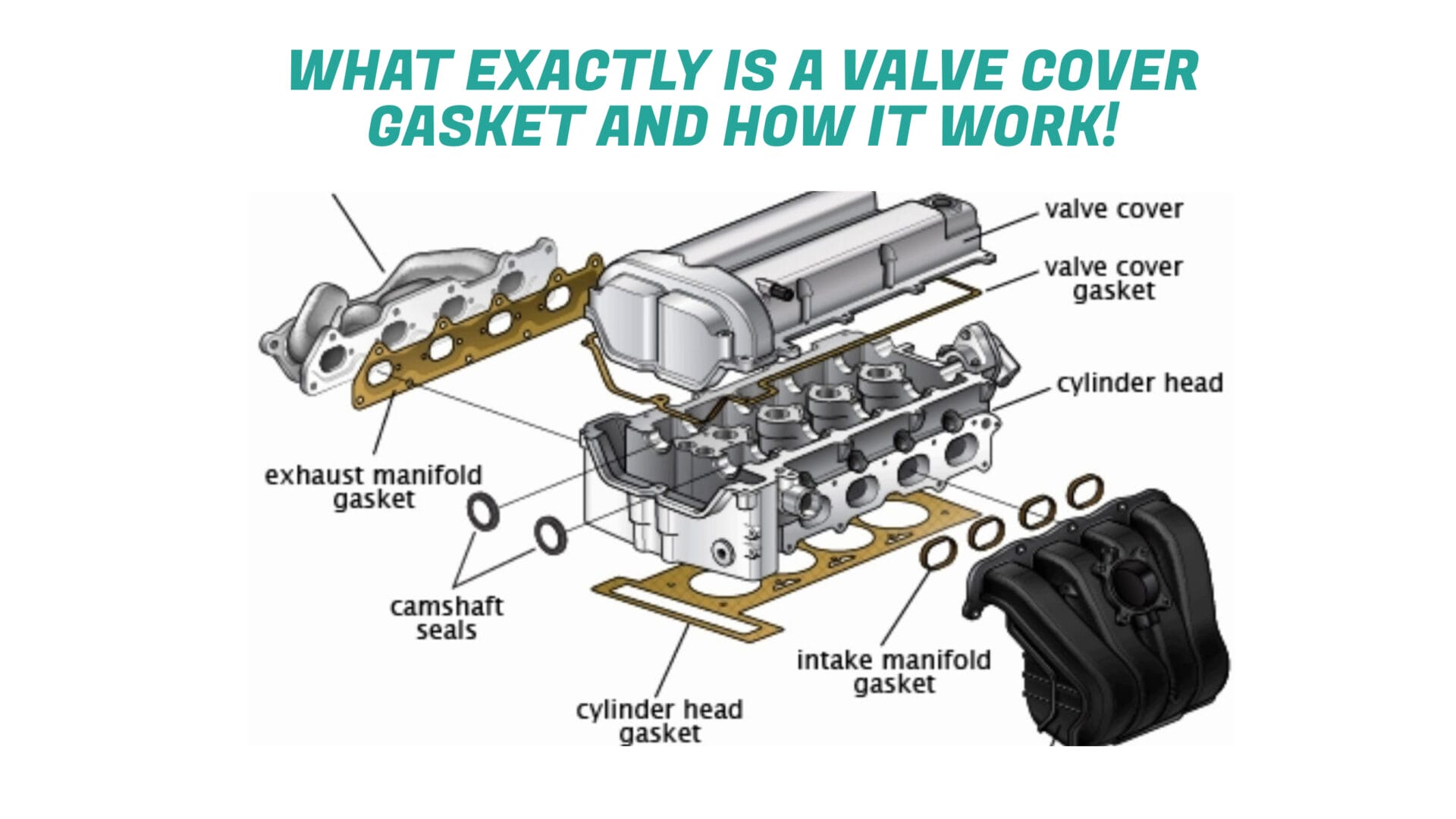
What is a Valve Cover Gasket?
A valve cover gasket is a small but mighty component nestled between the cylinder head, and the valve cover itself. Its primary job? Made of rubber, cork, or silicone, it creates a tight seal and can withstand the harsh conditions within the engine bay. Think of this rubber gasket as the guardian that ensures the engine’s lifeblood (motor oil) stays where it belongs.
How Does a Valve Cover Gasket Work in a Car?
A valve cover gasket in a car prevents an oil leak and maintains proper lubrication of moving engine parts. It creates a tight seal to ensure the combustion chamber is properly lubricated and prevents oil from leaking onto the exhaust manifold, to avoid potential hazards such as oil spilling. This keeps the engine block safe and the oil where it belongs, ensuring the right pressure for the engine to work well and last a long time. It’s like a guardian for the engine, making sure everything runs smoothly and lasts a really long time.
Additionally, the head gasket’s functionality impacts the overall health of the engine, making it essential to monitor and address any issues related to its function promptly.
Can a leaking valve cover gasket lead to low oil pressure?
Yes, a leaking valve cover gasket can lead to low oil pressure by causing oil leaks within the engine. This can result in increased friction, wear on vital engine components, and even engine failure. Additionally, it can contribute to excessive oil consumption, further complicating the situation.
Maintaining the oil pressure level in your vehicle is absolutely essential for its overall health and performance. The valve cover gasket keeps engine oil where it belongs and keeps all the moving parts properly lubricated and running smoothly. So, a valve cover leak isn’t just a minor annoyance; it’s the disruptor of oil harmony. This will cause the engine to struggle to keep up the right pressure for its best performance. Because now there is less oil available in oil pressure sending unit to lubricate and cool the moving the engine parts.
It’s like a slow erosion of your oil pressure that can result in increased friction and heat, which can cause excessive wear and tear to the engine.
With low oil pressure, parts such as bearings and camshafts can suffer excessive damage, potentially leading to costly repairs or even engine failure.
So, a leaking valve cover gasket can indeed cause low oil pressure. It can lead to visible leak and potential fire hazards and reduces the amount of oil available for lubrication and cooling.
We will know below what more a leaking valve gasket can cause.
Impact Of Leaking Valve Cover Gasket on Low Oil Pressure
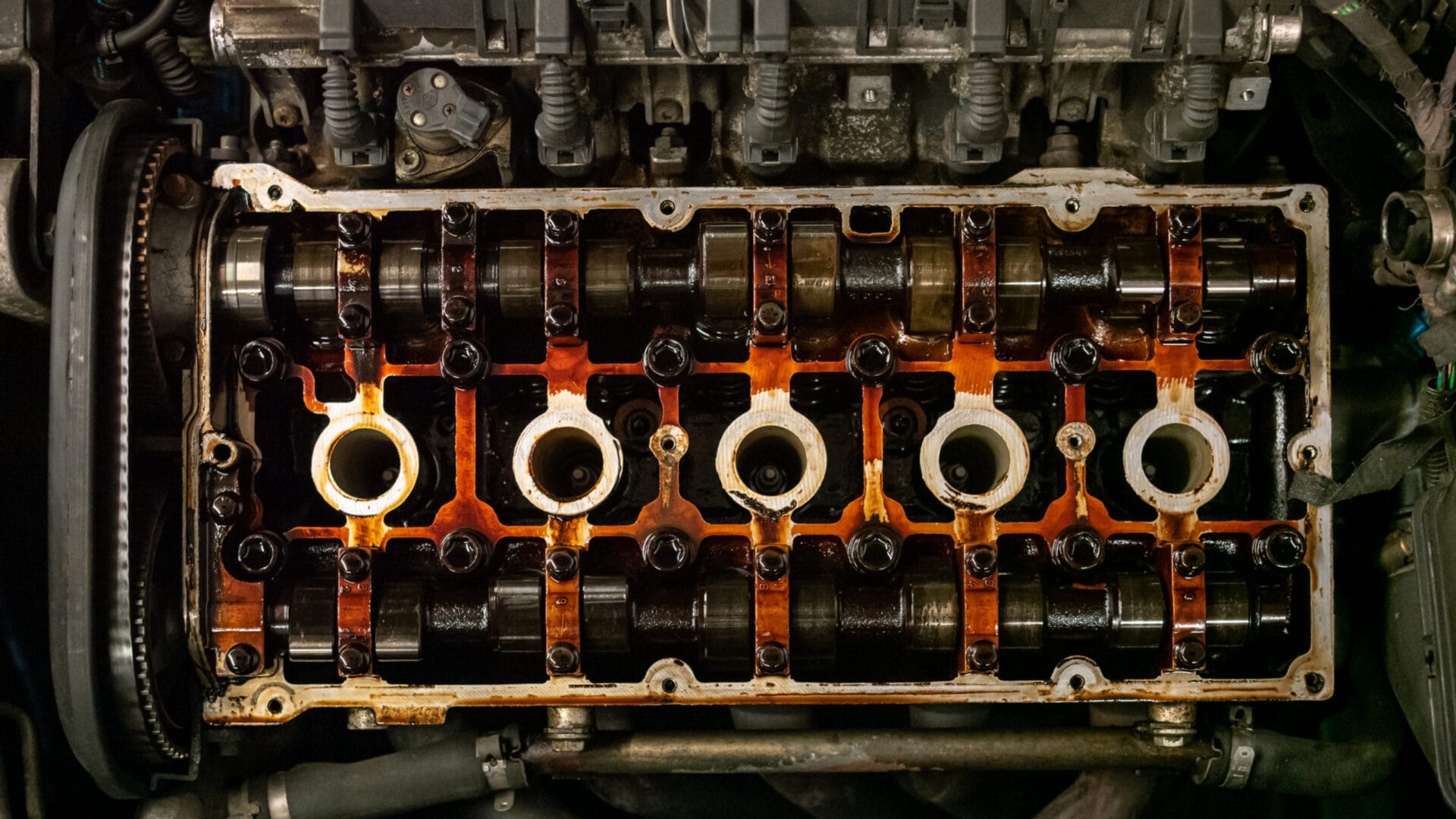
As we know, when the gasket deteriorates or develops cracks, it leaks. Now, oil can escape and create a mess under the hood. But it’s not just about the mess; a leaking valve cover gasket can lead to a variety of issues, including decreased lubrication and increased friction between moving parts.
- Important engine parts like bearings and camshafts are at risk, which can mess up how the engine works.
- The oil doesn’t follow its usual route for oil change or flow, and instead, it begins to seep out onto various engine components, including the cylinder head.
- The leaked oil, now making its way onto the hot exhaust manifold, heats up and creates a burning smell.
- Oil on a hot surface can lead to ignition and pose a fire risk.
- As oil seeps out, there’s less of it available to lubricate and cool the engine’s moving parts.
- Cause excessive oil consumption issues that put a strain on your wallet, as you constantly need to top up the oil.
- Excessive wear and tear on the vital engine components, leading to costly repairs down the road.
- Affects your engine’s performance and can lead to costly repairs.
However, low oil pressure isn’t a silent issue. It often comes with warning signs such as dashboard lights flickering or unusual engine noises. Ignoring these signals could lead to more severe problems, including decreased fuel efficiency and, in extreme cases, engine failure. So, stay sharp, fix those leaks pronto, and keep your engine grooving smoothly.
What To Do If Low Oil Pressure Is Detected
Low oil pressure is what truly warrants attention. Be alert and watch out for low oil pressure warning signs. Low oil pressure poses severe risks to an engine’s integrity with inadequate lubrication. Additionally, cylinders can also suffer from combustion chamber issues that may arise if low oil pressure is disregarded.
So, whenever you suspect low oil pressure, immediately pull over to the side of the road or a parking lot for safety reasons. Continuing to drive with low oil pressure can result in catastrophic consequences for the engine.
How To Diagnose a Leaking Valve Cover Gasket
Once you’ve safely stopped, turn off the engine to prevent further wear and damage to the engine. Now, wait for a few minutes until the engine cools down; touching a hot engine can burn your hand. Then, pop the hood and check the oil level using the dipstick. If the oil level is significantly low, but it is supposed not to be so low as you recently topped up, something is fishy.
Symptoms of leaked valve cover gasket
- Look for oil puddles or drips under your car.
- Notice a burning odor? It could be burning oil hitting hot engine parts.
- If you see smoke under the hood, there might be a leak.
- Engine acting up? Leaked oil could be messing with combustion.
- Check for oil on the spark plug; it can affect their performance.
- Cracks, tears, or visible wear on the gasket.
- Engine light on your dashboard.
How To Fix a Leaking Valve Cover Gasket
Driving with low oil pressure can lead to severe engine damage. A leaked valve cover gasket usually demands replacement. So, it’s better to call for a professional if you see a substantial leak. Moreover, you need to do a proper inspection to be assured the engine components or others that were at risk of damage due to the leaked valve cover gasket are in good condition.
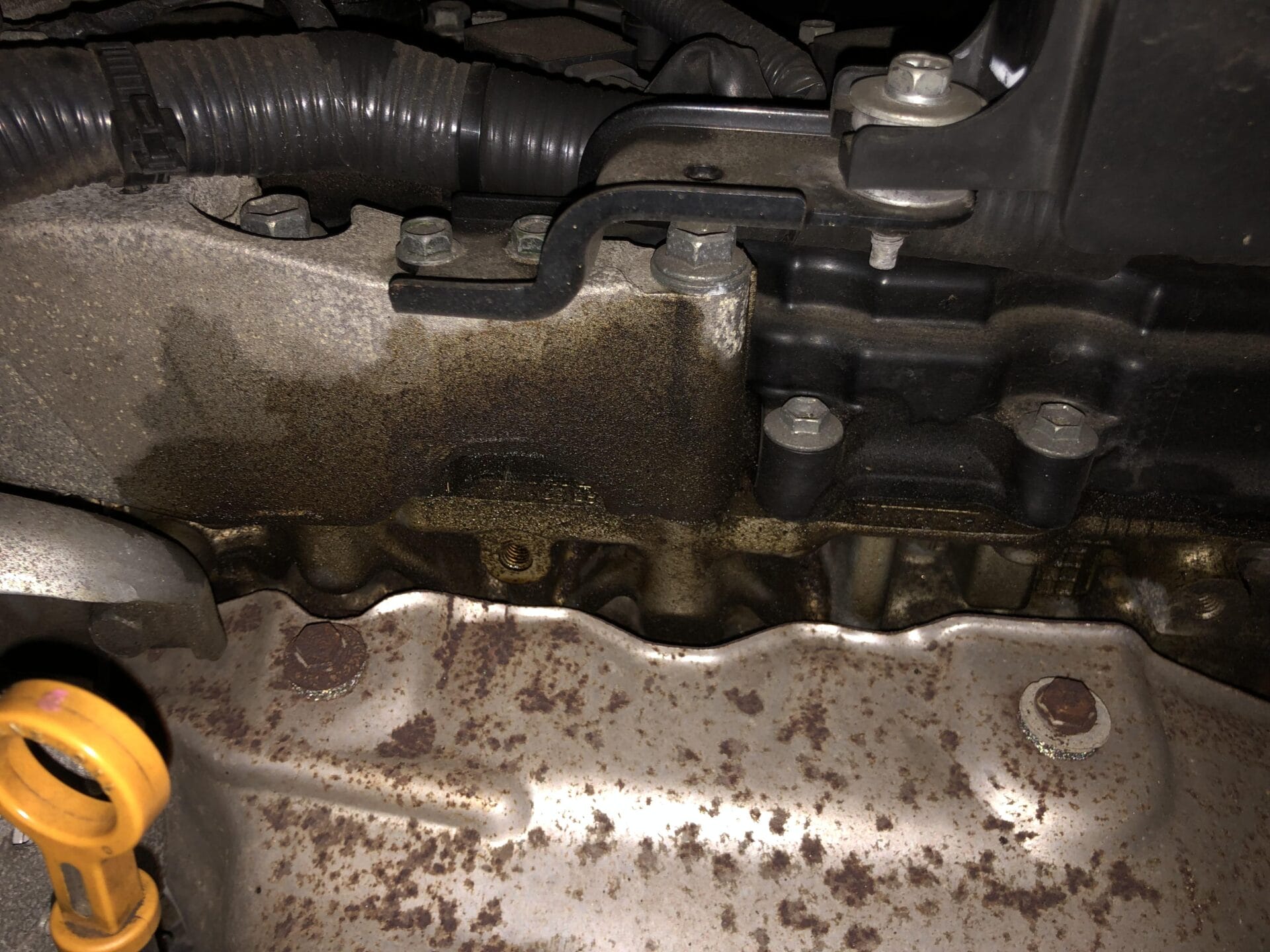
Preventive Measures for Valve Cover Gasket Leaks
Valve cover gasket leaks can be a nuisance, but fortunately, there are preventive measures you can take to avoid them.
- Regularly inspect the valve cover gasket for signs of wear, cracking, or damage. If it needs replacement, use high-quality gaskets made from tough materials that can withstand high temperatures and pressure and have it professionally installed.
- Proper installation is needed to ensure a secure seal and longevity. Ensure bolts are tightened to the correct torque specifications. Over-tightening can cause the gasket to deform and lead to leaks, while under-tightening can result in insufficient compression and the same outcome.
- When replacing the gasket, use a proper sealant as recommended by the manufacturer. This enhances the gasket’s sealing capabilities.
- Check your engine oil level at regular intervals with an oil pressure gauge or oil pressure sensor as recommended by the manufacturer. Don’t forget to oil filter if debris is there. Fresh, clean, and quality oil helps maintain proper lubrication and reduces stress on the gasket. So, opt for high-quality engine oil with the correct viscosity. Quality oil provides better protection and helps preserve the integrity of the gasket.
- Prevent engine overheating, as excessive heat can accelerate gasket deterioration and oil burning. Ensure your cooling system is in good condition and have enough oil cooler.
- During maintenance, use a gentle cleaner when cleaning around the valve cover to avoid damaging the gasket.
By incorporating these preventive measures into your routine maintenance, you can significantly reduce the risk of valve cover gasket leaks, ensuring your engine operates smoothly and efficiently.
How Can You Extend The Lifespan Of The Valve Cover Gasket?
To extend the lifespan of the valve cover gasket, you can follow the preventive measures I just shared above. Replacing the gasket during scheduled maintenance and regular engine inspections, addressing and rectifying them on time, keeping the engine bay clean, avoiding overfilling the engine with oil, etc, can extend your valve cover gasket lifespan.
Overall, proper maintenance of engine components plays a significant role in reducing strain on the valve cover gasket, ultimately extending its lifespan and ensuring the effective functioning of the engine.
Is It Safe To Drive With a Leaking Valve Cover Gasket?
No, it’s not safe to drive with a leaking valve cover gasket. Continued driving with a leaking valve cover gasket can lead to oil loss and low oil pressure, making it unsafe to drive. It can also cause damage to engine components and result in lubrication issues if not addressed. But if it’s an immediate emergency, you can drive short distances with a minor leak.
Let’s know the risks related to driving with a leaking valve cover gasket.
Oil Loss:
A leaking valve cover gasket allows engine oil to escape. If the oil level drops significantly, it can lead to inadequate lubrication of engine components, resulting in increased friction, heat, and potential damage.
Engine Overheating:
Insufficient oil circulation due to a leak can contribute to engine overheating. Overheating can cause severe damage to engine components and may lead to costly repairs.
Fire Hazard:
If leaked oil comes into contact with hot engine parts, such as the exhaust manifold, it can create a fire hazard. Oil is flammable, and a combination of leaked oil and high temperatures increases the risk of a fire.
Poor Engine Performance:
As oil levels decrease, engine performance may be compromised. You may experience issues such as reduced power, poor acceleration, and even engine misfires.
Increased Repair Costs:
Ignoring a leaking valve cover gasket can lead to more significant problems over time. What might start as a minor leak can escalate, causing damage to critical engine components and resulting in higher repair costs.
FAQ
What Problems Can a Leaking Valve Cover Gasket Cause?
Valve cover gasket leaks can result in visible oil leaks, a burning smell, and engine misfires. Continuous driving with this leakage can result in low oil levels, affecting lubrication and potentially causing engine damage. Sometimes it may produce smoke, indicating a potential fire hazard. Additionally, insufficient lubrication can contribute to engine overheating, leading to further complications. Ignoring this can lead to more significant problems, resulting in higher repair expenses over time.
What Causes Low Oil Pressure?
Low oil pressure can be caused by leaky valve cover gaskets, worn bearings, oil pump issues, low oil levels, viscosity problems, clogged oil filters, engine wear, and coolant contamination.
Can A Leaking Oil Pan Gasket Cause Low Oil Pressure?
Yes, a leaking oil pan gasket can cause low oil pressure. When the oil pan gasket leaks, it allows oil to escape, leading to a gradual reduction in oil levels. In turn, low oil levels compromise the engine’s lubrication, resulting in decreased oil pressure.
Can A Leaking Valve Cover Gasket Cause Lean Condition?
No, a leaking valve cover gasket typically does not cause a lean condition.
A valve cover gasket is responsible for preventing oil leaks and does not directly impact the air-fuel mixture in the combustion chamber. Lean conditions are usually related to issues with the air intake system, such as a vacuum leak, faulty oxygen sensor, or problems with the fuel delivery system.
While a leaking valve cover gasket can lead to oil leaks and other issues, it is not a direct factor in causing a lean condition. If you suspect a lean condition, it’s advisable to check other components related to the air and fuel systems for potential problems.
Can A Leaking Valve Cover Gasket Affect Idle?
Yes, a leaking valve cover gasket can potentially affect the idle. While a leaking valve cover gasket is not the primary culprit for idle issues, it can contribute indirectly by causing related problems.
If the gasket is leaking, it may introduce air into the engine that is not measured by the mass airflow sensor. This can disrupt the air-fuel mixture, impacting idle stability.
Leaked oil onto spark plug and other engine components can affect combustion efficiency and lead to misfires, causing a rough or unstable idle.
Is Valve Cover Gasket Serious?
Yes, a leaking valve cover gasket can be a serious issue, it can create a fire hazard, affect performance and fuel efficiency, engine overheating, and poor engine performance, and increase repair costs over time.
Conclusion
In the world of car care, a leaking valve cover gasket isn’t just a minor glitch—it’s a potential catalyst for serious engine issues. A leaking valve cover gasket can lead to oil leaks and, in turn, low oil pressure if not repaired.
Understanding the function of a valve cover gasket and recognizing the signs of a leak is your ticket to a smoothly running vehicle.
So, keep an eye out for those signs, perform regular maintenance, and ensure your trusty steed stays in top-notch condition for the long road ahead.

